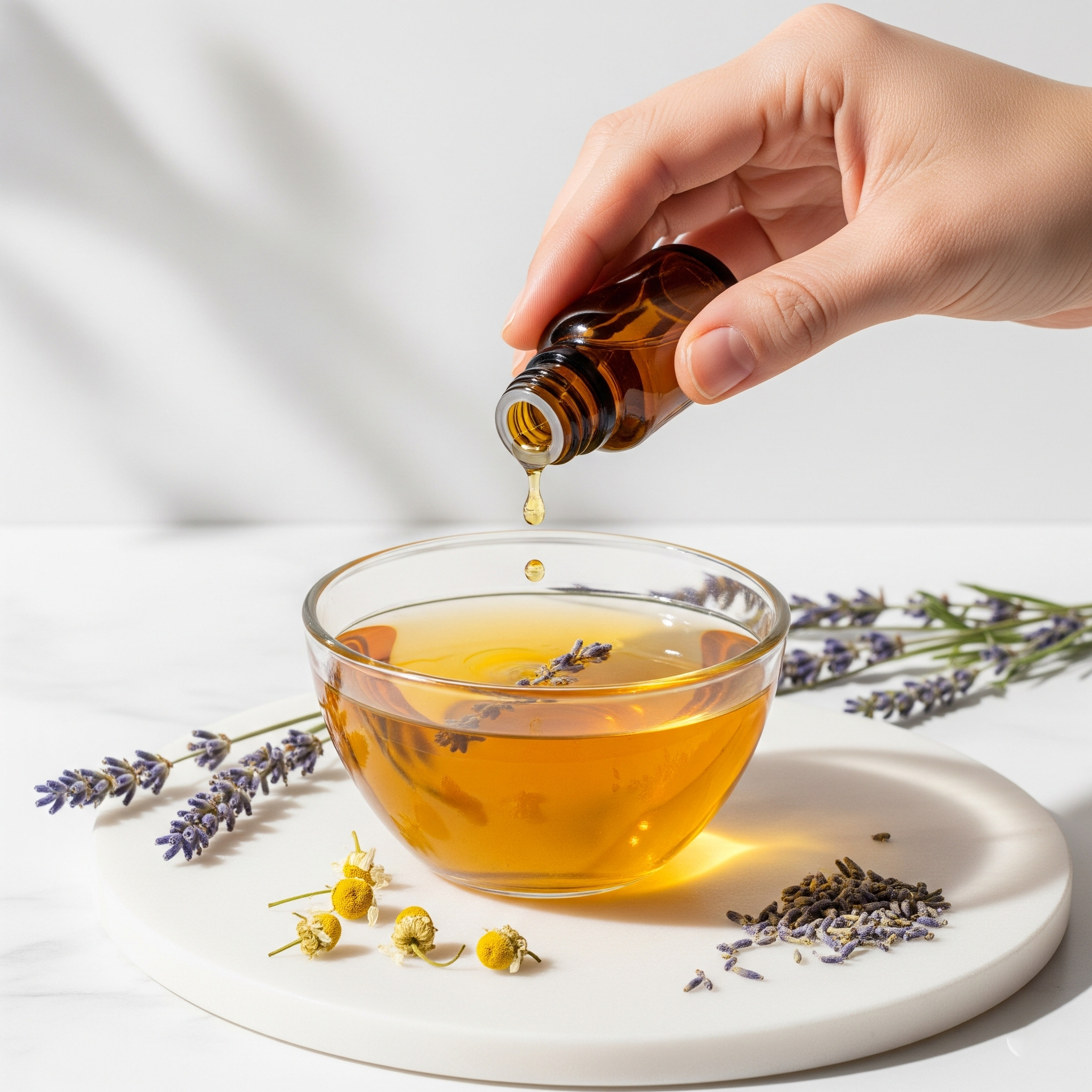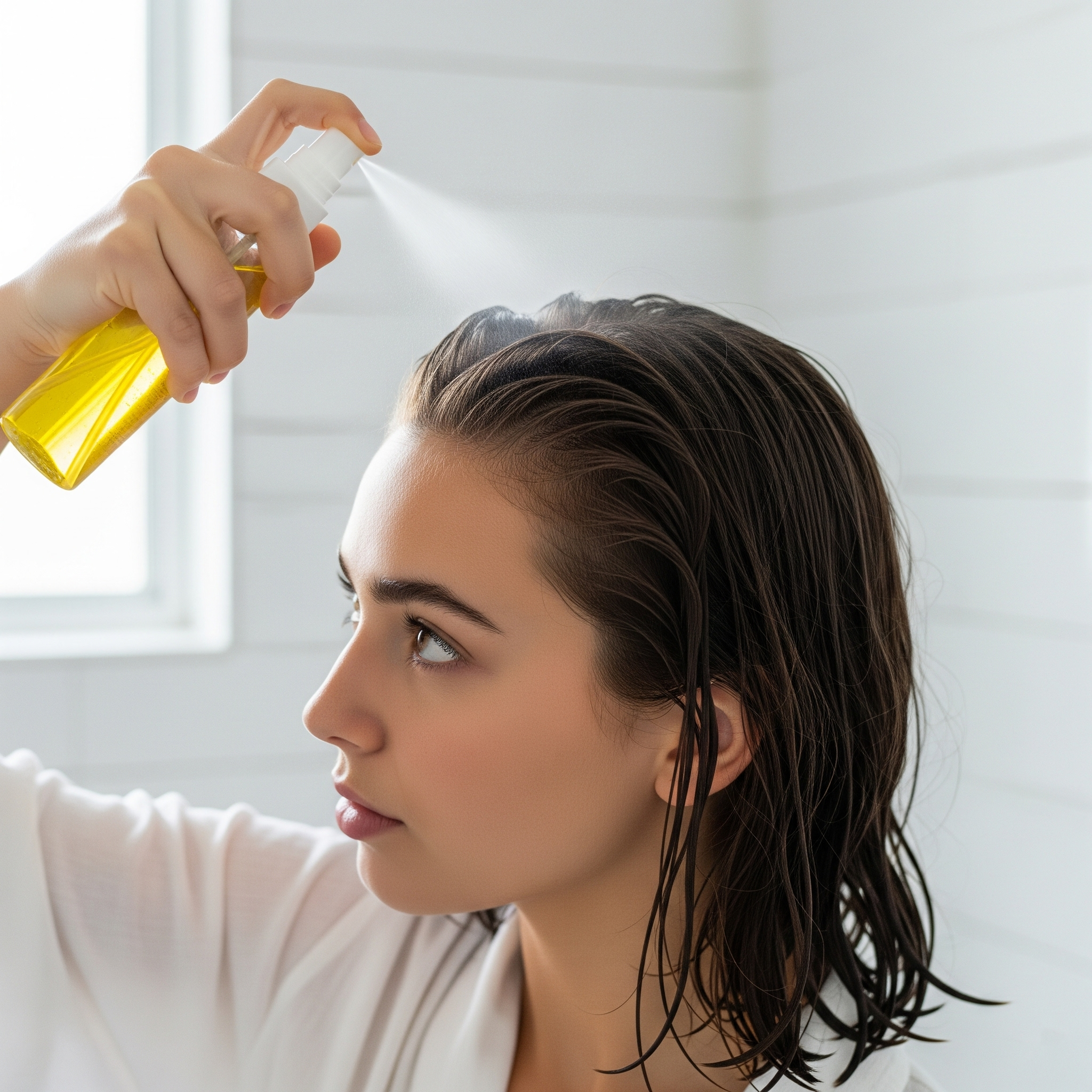Hair fall is one of the most common beauty concerns today, affecting people across age groups and hair types. While there are countless commercial treatments on the market, many of them come with chemicals, high costs, and unwanted side effects. Fortunately, one of the most effective natural solutions may already be in your kitchen — tea.
Both black and green teas are loaded with antioxidants, vitamins, and plant compounds that not only support internal health but also nourish your scalp and hair. When used as a rinse or scalp treatment, tea water can reduce shedding, stimulate hair follicles, and improve overall hair strength.
Let’s explore how tea helps reduce hair fall, how to prepare and use it correctly, and tips for making it part of your weekly hair care ritual.
Why tea water helps with hair fall
Tea, especially black and green varieties, is rich in compounds that directly benefit your scalp and hair. These include:
1. Catechins
Catechins are powerful antioxidants found in tea that help reduce the production of dihydrotestosterone (DHT), a hormone often linked to hair loss. By blocking DHT, catechins may prevent the shrinking of hair follicles — a key cause of thinning.
2. Caffeine
Both black and green teas contain caffeine, which has been shown to stimulate blood flow to the scalp and extend the anagen (growth) phase of the hair cycle. This helps promote thicker, longer hair over time.
3. Polyphenols
These compounds improve microcirculation in the scalp, allowing hair follicles to receive more oxygen and nutrients. This supports stronger hair roots and helps reduce breakage.
4. Vitamin C and vitamin E
These vitamins protect your scalp from oxidative stress while supporting tissue repair and improving shine. They also help neutralize free radicals that damage hair cells.
How to prepare tea water for hair wash

Making tea water at home is incredibly simple, and you only need a few basic ingredients.
Ingredients:
-
2–3 tea bags (black tea or green tea)
-
2–3 cups of filtered water
-
Optional: 3–5 drops of essential oil (lavender, rosemary, or peppermint)

Instructions:
-
Boil the water
Bring the water to a boil in a clean saucepan. -
Steep the tea
Add the tea bags and let them steep for 5 to 10 minutes, depending on how strong you want the infusion. -
Cool the tea
Remove the tea bags and allow the liquid to cool to room temperature. Never apply hot tea directly to your scalp, as it may cause burns. -
Add essential oils (optional)
Mix in a few drops of essential oil to enhance scalp stimulation, nourishment, and aroma. -
Store for use
Pour the cooled tea into a spray bottle or container for easier application. You can refrigerate it for up to 3–4 days.
How to apply tea water to reduce hair fall

Using tea water correctly is key to achieving the desired results. Follow this step-by-step guide:
Step 1: Shampoo your hair
Start with clean hair. Use a mild, sulphate-free shampoo to remove buildup and prepare your scalp for better absorption.
Step 2: Apply tea water
While your hair is damp, pour the tea water directly onto your scalp or use a spray bottle. Make sure your scalp and hair roots are fully saturated.
Step 3: Massage
Gently massage the tea into your scalp for 5–10 minutes using your fingertips. This boosts circulation and allows the nutrients to penetrate.
Step 4: Let it sit
Leave the tea rinse on your hair for about 15–20 minutes. Cover your head with a shower cap for better absorption if desired.
Step 5: Rinse or leave in
-
For oily or normal hair: You may rinse with cool water and follow with a lightweight conditioner.
-
For dry or curly hair: You can skip rinsing to retain maximum moisture and shine.
Repeat this 2–3 times per week depending on your hair type and how your scalp reacts. If your hair becomes dry, reduce frequency to once a week.
Benefits of using tea water for hair
Regular use of tea water can result in several noticeable improvements:
1. Reduces hair fall
The antioxidants in tea help reduce oxidative damage and inflammation in the scalp, both of which are common triggers for hair fall. Caffeine further strengthens the hair roots and minimizes daily shedding.
2. Stimulates hair growth
Improved blood circulation and extended hair growth phases help stimulate new hair growth, particularly at the crown and hairline.
3. Adds natural shine
Tea helps smooth down the hair cuticle, reflecting more light and giving your strands a silky, glossy finish.
4. Balances oil production
For oily scalps, tea water can help regulate sebum levels and reduce greasiness between washes.
5. Soothes scalp irritation
The anti-inflammatory properties of tea can calm an itchy, flaky, or inflamed scalp, reducing conditions like dandruff and dermatitis.
Green tea vs black tea for hair: which is better?
Both teas are excellent for hair health, but they offer slightly different benefits:
-
Green tea contains higher levels of antioxidants and is ideal for stimulating growth and reducing inflammation. It’s gentler and well-suited for dry or sensitive scalps.
-
Black tea contains more caffeine and tannins, making it great for reducing hair fall and strengthening roots. However, it may darken light-colored hair with regular use.
You can alternate or blend both teas depending on your hair needs and preferences.
